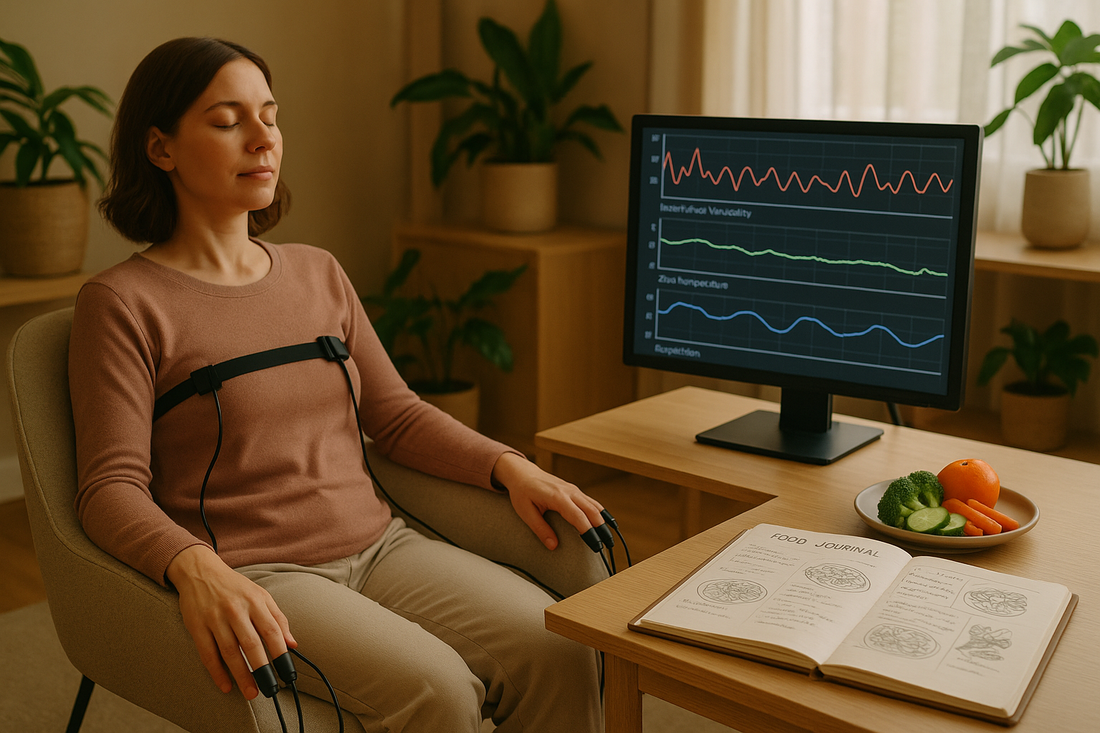
Biofeedback Training for Intuitive Eating After Bariatric Surgery
Share
As someone who has undergone bariatric surgery, you are aware of the profound impact it can have on your relationship with food and your body's hunger signals. The journey to regain intuitive eating can be challenging, but with the help of biofeedback training, you can unlock a deeper understanding of your body's cues and develop sustainable eating habits.
Understanding Hunger Cues
Hunger is a natural, physiological response that our bodies use to communicate their need for nourishment. However, after bariatric surgery, hunger perception can become distorted due to changes in gut hormone production—particularly ghrelin, leptin, and peptide YY—which are altered after procedures like gastric bypass or sleeve gastrectomy NIH.
These hormonal changes can make it difficult to distinguish between true hunger and emotional or environmental triggers, increasing the risk of overeating, under-eating, or nutrient deficiencies ASMBS.
Biofeedback Techniques for Intuitive Eating
Biofeedback is a mind-body technique that uses sensors to provide real-time data about your physiological state—such as heart rate, respiration, and skin temperature—helping you gain awareness and voluntary control over bodily functions Cleveland Clinic.
For post-bariatric patients, biofeedback training can retrain the brain to recognize hunger and satiety cues, bridging the gap between altered gut signaling and eating behavior. Tools such as heart rate variability (HRV) monitors, skin conductance sensors, and breathing regulators are commonly used to support this process NIH.
Benefits for Post-Bariatric Patients
Improved Eating Behavior
Biofeedback training helps separate emotional from physiological hunger, promoting mindful eating and reducing binge or compulsive eating tendencies PubMed.
Enhanced Mind-Body Awareness
Patients become more attuned to physiological signals, enabling healthier food decisions and better self-regulation Journal of Behavioral Medicine.
Long-Term Weight Management Strategies
Studies suggest that biofeedback supports sustained weight loss by enhancing emotional resilience and stress management, which are closely linked to weight regain JAMA.
Practical Implementation of Biofeedback
Biofeedback training typically involves working with a registered dietitian, psychologist, or certified therapist who guides you through sessions using real-time feedback tools.
You’ll learn to:
- Interpret heart rate or breathing data.
- Practice deep diaphragmatic breathing and progressive muscle relaxation.
- Link physiological responses to emotional or hunger-related triggers.
Over time, this helps rebuild intuitive eating skills, even in the context of altered gastric anatomy and digestive feedback loops Mayo Clinic.
Case Studies and Research Insights
A 2020 study published in the Journal of the American College of Nutrition found that patients who underwent biofeedback training demonstrated significant improvements in satiety recognition and eating self-regulation, resulting in more stable weight over 12 months PubMed.
In another case study from Obesity Surgery Journal, a bariatric patient with emotional eating behaviors reported enhanced mindfulness and reduced binge episodes after a structured biofeedback protocol Springer.
Conclusion
Regaining intuitive eating after bariatric surgery is a journey of self-awareness and healing. With biofeedback training, you can reestablish your connection with your body's hunger cues, overcome emotional eating, and create sustainable habits that support your long-term health and weight management.
This practice isn’t just about food—it’s about relearning to listen to your body in a whole new way. Whether you're newly post-op or several years out, incorporating biofeedback can help you stay aligned with your wellness goals and build a more empowered, mindful relationship with eating.
Medical Disclaimer
This content is for informational purposes only and should not be construed as medical advice. Always consult with your healthcare provider before starting any new therapy, including biofeedback training.
